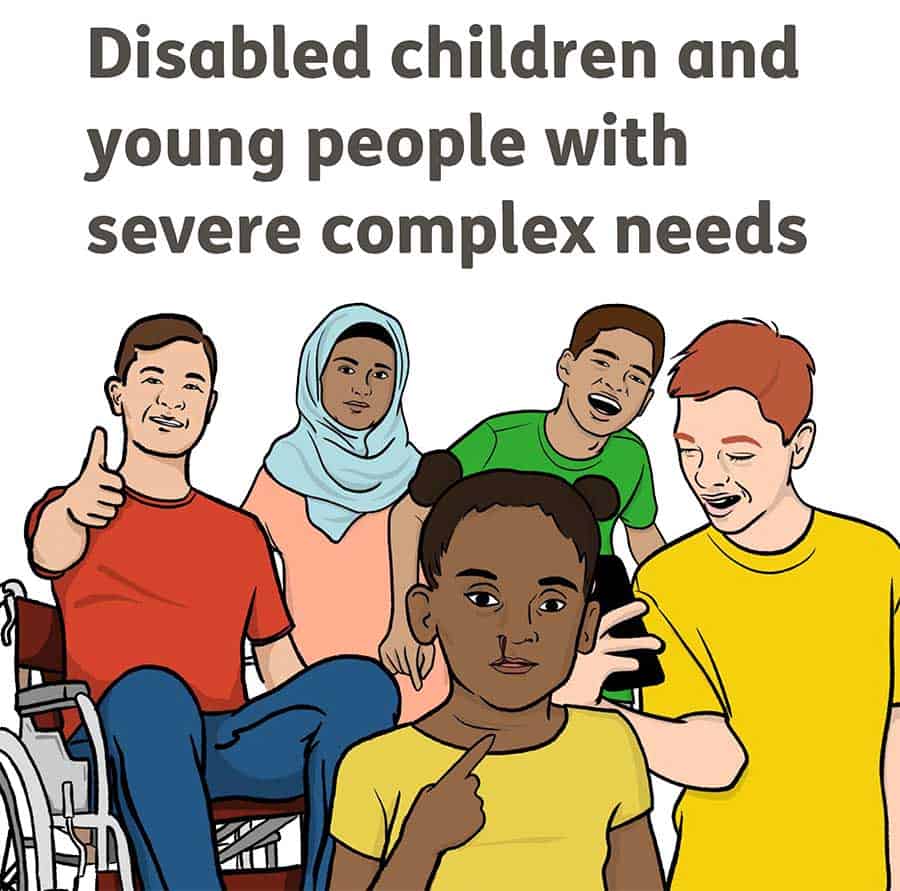Consultation to gain feedback on NICE’s guidance on service delivery for disabled young people

The National Institute for Health and Care Excellence (NICE) has launched a new consultation, which seeks the views of people and organisations that are involved with health, social care and education service delivery for disabled young people with severe complex needs.
NICE has written some guidance about how services should work for people with a learning disability and behaviour that challenges. Specifically, the guidance refers to people up to 25 years old with severe complex needs. It is expected to be published on 19th January 2922.
NICE is asking people to consider the areas that will have the biggest impact on practice and be challenging to implement, as well as how to help users overcome challenges.
The guide intends to ensure:
- disabled children and young people with severe complex needs get the right support from education, health and social care services
- children and young people are involved in decisions about their support
- staff think about each person’s wants and needs by working more cooperatively with services
Now, the institute wants to hear relevant stakeholders’ thoughts on the proposed guidance. The consultation closes on 14th September 2021 at 5pm.
To comment on the guide, use NICE’s comments form (which can be accessed here) and email it to: CYPseverecomplexneeds@nice.org.uk
Below, AT Today has summarised some of the key points from within the document.
Involving the individual
NICE stresses that any relevant staff members should include the individual in decisions about their support by finding out the person’s goals, getting to know them, understanding their needs and learning about how they like to communicate.
On top of this, the team should keep individuals informed about their care and support, any assessments they need, meetings, and any staff or services who are involved in assisting them. Staff members should also coordinate with individuals when the best time is to have meetings about their health and care needs, and ensure all the right people are at the meeting.
The guide continues: “If staff think you have severe complex needs, they should involve other services as soon as possible, so they can work together to provide you with support, [and] tell you about any support that is available before you have an education, health and care needs assessment.”
Education, health and care plan
Disabled children and young people should be informed about how education, health and care needs assessment can help them, NICE advises.
In addition, staff should explain to the person what services are available in their area and who can use them. This will give them more of an idea of how an education, health and care plan could help. While the individual is waiting for the assessment to be done, staff should make sure they are getting the support they need.
An education, health and care plan should include the individual’s goals, what they are good at and things they are interested in to ensure it is personalised and relevant to them.
NICE suggests that all staff involved work together to write the plan so it works as a whole and makes sense to everyone. If the person’s needs change, the plan should be changed to reflect this too.
Assistive technologies
Alongside ensuring parents and carers are trained and understand the individual’s needs, the guide also discusses how assistive technologies can facilitate further independence.
For example, NICE advises that individuals are trained on how to use communication aids so they can be used in more than one setting, such as in schools, at home or out with friends.
The guide also prompts staff to consider what environmental changes might be needed for the individual to ensure they can access things in their life. This includes installing ramps around the home for wheelchair users and using switches to help people use computers.
Collaboration across services
NICE says: “You should have 1 person who is in charge of all your support and helps you understand the different services that are involved. They might be called a ‘key worker’.”
Key workers should be part of a team that is supporting an individual and understands their needs.
Services should ask the individual how well they have been supported and how well they have worked with other services.
The guide adds: “When councils and health commissioners set up new services, they should make sure these services are supporting you as soon as possible, before any serious problems can happen.
“Councils and health commissioners should involve disabled children and young people and their parents and carers in planning local services.”

